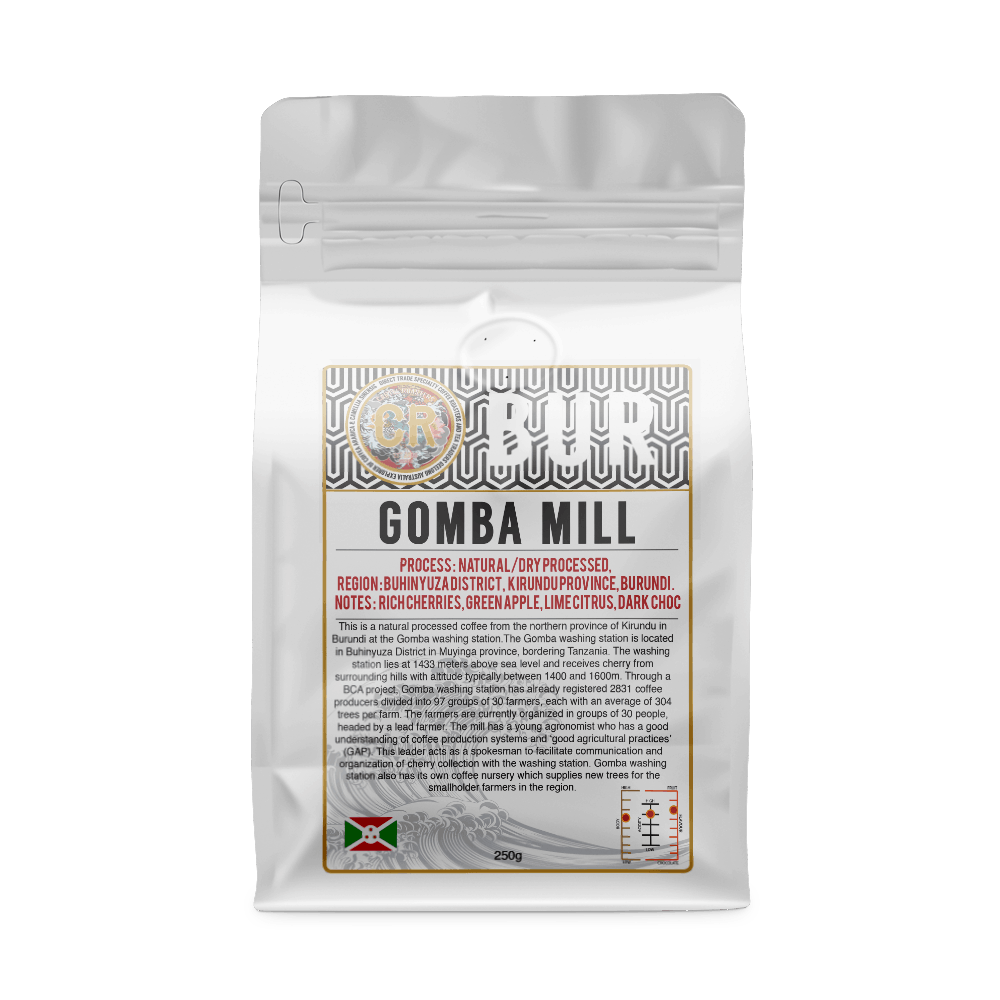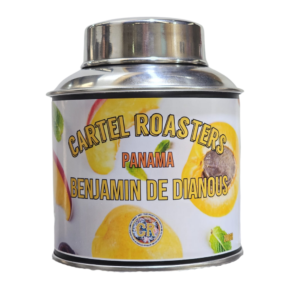About this coffee
- Altitude: 1650
- Score: 87
- COUNTRY: BURUNDI
Cups clean with lovely fruit flavours, chocolate and cherry & golden raisons.
This is a natural processed coffee from the northern province of Kirundu in Burundi at the Gomba washing station.The Gomba washing station is located in Buhinyuza District in Muyinga province, bordering Tanzania. The washing station lies at 1433 meters above sea level and receives cherry from surrounding hills with altitude typically between 1400 and 1600m. Through a BCA project, Gomba washing station has already registered 2831 coffee producers divided into 97 groups of 30 farmers, each with an average of 304 trees per farm. The farmers are currently organized in groups of 30 people, headed by a lead farmer. The mill has a young agronomist who has a good understanding of coffee production systems and ‘good agricultural practices’ (GAP). This leader acts as a spokesman to facilitate communication and organization of cherry collection with the washing station. Gomba washing station also has its own coffee nursery which supplies new trees for the smallholder farmers in the region. We love this coffee and know you will love this as a Filter or Espresso.
HISTORY OD BURUNDI
Coffee production has been something of a roller coaster in Burundi, with wild ups and downs: During the country’s time as a Belgian colony, coffee was a cash crop, with exports mainly going back to Europe or to feed the demand for coffee by Europeans in other colonies. Under Belgian rule, Burundian farmers were forced to grow a certain number of coffee trees each—of course receiving very little money or recognition for the work. Once the country gained its independence in the 1960s, the coffee sector (among others) was privatized, stripping control from the government except when necessary for research or price stabilization and intervention. Coffee farming had left a bad taste, however, and fell out of favor; quality declined, and coffee plants were torn up or abandoned.
After the civil war–torn 1990s and the nearly total devastation of the country’s economy, coffee slowly emerged as a possible means to recover the agrarian sector and increase foreign exchange. In the first decade of the 2000s, inspired in large part by neighboring Rwanda’s success rebuilding through coffee, Burundi’s coffee industry saw an increase in investment, and a somewhat healthy balance of both privately and state-run coffee companies and facilities has created more opportunity and stability, and has helped Burundi establish itself as an emerging African coffee-growing country, despite its small size and tumultuous history.
Like Rwanda and, to a lesser extent, Democratic Republic of Congo, Burundi battles the infamous “potato defect,” a microorganism that contributes a raw-potato-like flavor and aroma to infected beans, and which can’t be detected by sight in parchment, green, or roasted coffee. Research efforts to eradicate the defect completely have shown promise, and we look forward to the day when the potato is a distant memory.
[jgm-review-widget]





